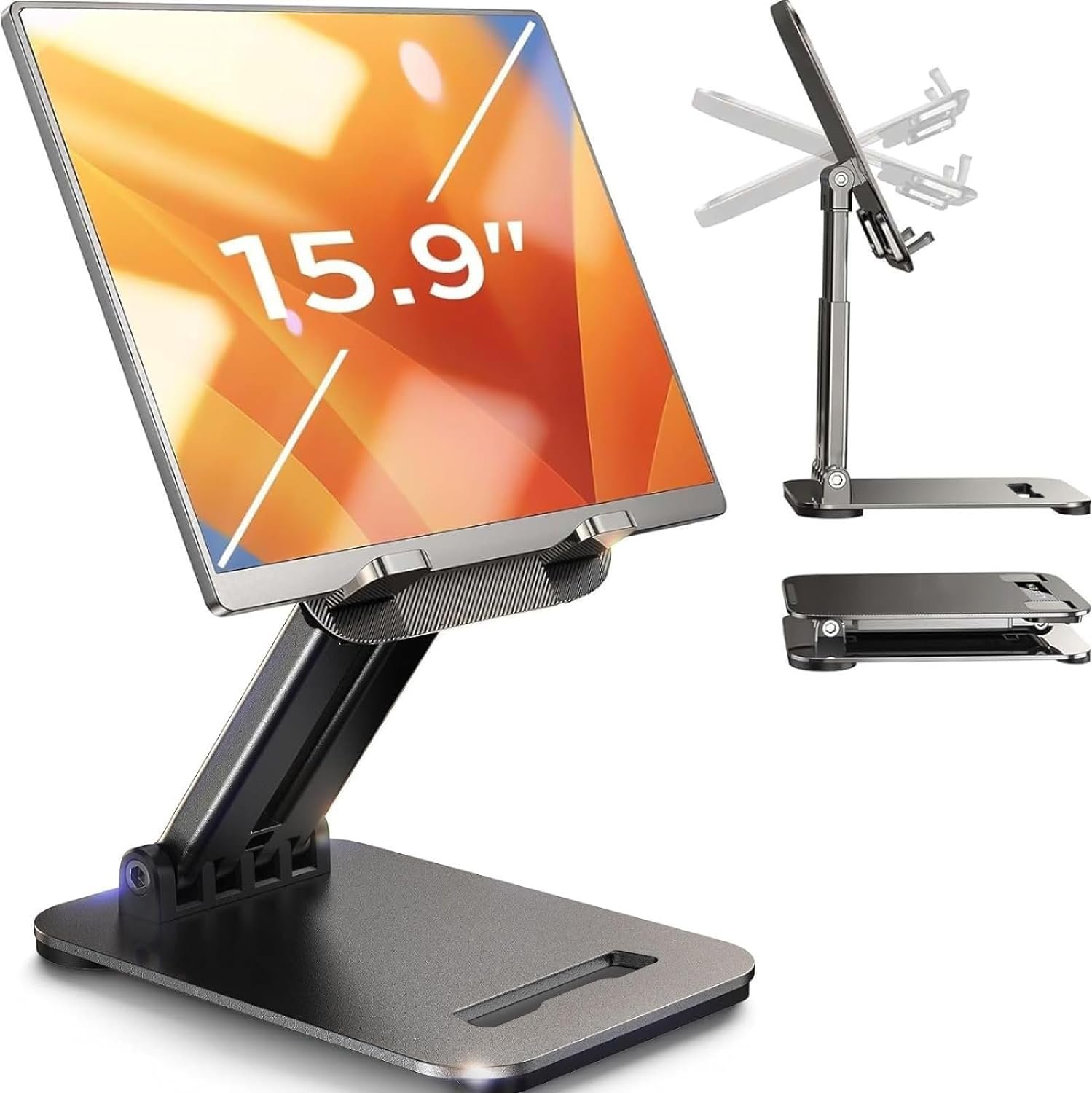Estimated reading time: 20 minutes
Introduction
The landscape of leading LMS (Learning Management Systems) up to 2024 has witnessed a remarkable transformation, evolving far beyond their initial role as mere repositories for training material and courses. Today’s LMS platforms, such as Moodle LMS, have become integral in shaping personalized learning paths and fostering social learning. This evolution is a response to the growing demand for learning solutions that are efficient in compliance training and dynamic enough to cater to the diverse learning styles and needs of modern learners. The key to their effectiveness lies in their ability to offer a range of advanced features, from gamification features that engage and motivate to analytics that track and enhance the learning process.
In 2024, organizations looking for an LMS are not just seeking a system to train employees; they are searching for a comprehensive learning and development tool. This shift in demand highlights the importance of choosing an LMS that aligns with an organization’s specific training programs and corporate training goals. The best LMS systems of this era stand out for their ability to seamlessly integrate learning features into the daily workflow, making them indispensable tools for partner training and employee learning. The sophistication of these systems, including how they enable personalized learning and leverage social learning features, represents a significant leap in how educational content is delivered and consumed, making learning management systems of 2024 a pivotal element in education and professional development.
Key Takeaways
- Leading LMS Platforms in 2024: The evolution of LMS up to 2024 highlights a shift towards personalized, interactive, and socially engaging learning experiences, far surpassing traditional training methods.
- Moodle’s Open-Source Innovation: Moodle LMS stands out for its open-source flexibility, catering to diverse educational needs with customizable and scalable learning solutions.
- Absorb LMS for Small Businesses: Absorb LMS revolutionizes learning in small businesses by offering tailored, user-friendly features that enhance learning engagement and effectiveness.
- Canvas LMS in Enterprises: Canvas LMS emerges as a top choice for enterprises due to its robustness, adaptability, and enterprise-focused learning capabilities.
- LMS Tools and Interactive Learning: Integrating innovative tools in LMS platforms in 2024 significantly enhances learning experiences, making them more interactive and insightful.
- Impact of Learning Platforms on Online Education: Modern learning platforms are reshaping online education by introducing blended learning models and mobile-friendly courses.
- LMS Software in Employee Training: Effective LMS software plays a pivotal role in employee training, offering customized learning paths and performance tracking.
- Designing Successful Learning Programs with LMS: A successful learning program in 2024 leverages LMS features for content creation, flexibility, and balanced structure, ensuring comprehensive learning experiences.
Evaluating Leading LMS Platforms in 2024
The Importance of Selecting the Best LMS
As we venture into 2024, the significance of choosing the best LMS (Learning Management System) has become more pronounced than ever. With the proliferation of online learning platforms, businesses, educational institutions, and even individual learners face the challenge of navigating a sea of options. Selecting the right LMS isn’t just about picking a tool for delivering training courses; it’s about investing in a system that aligns with your educational goals, offers scalability, and provides an effective learning experience. Whether a small business exploring cloud-based LMS options or a large enterprise considering a comprehensive enterprise LMS, the decision can profoundly impact the effectiveness of learning and training initiatives.
Comparison of Top LMS Platforms Including Blackboard, Moodle, and Canvas
| LMS Vendor | Type of LMS | Key Features | Best For |
|---|---|---|---|
| Blackboard | Cloud-based/Enterprise | Comprehensive course management, analytics | Higher Education, Large Enterprises |
| Moodle | Open-source/Self-hosted | Customizable, community support | Educational Institutions, Developers |
| Canvas | Cloud-based | User-friendly interface, integration options | Schools, Small to Medium Businesses |
The Rise of User-Friendly Leading LMS Platforms
The year 2024 marks a significant shift towards user-friendly LMS platforms. Gone are the days when LMSs were clunky and difficult to navigate. Today’s top learning management systems, such as Canvas and Moodle, emphasize intuitive design and ease of use, making them accessible to a broader audience.
Case Study: Consider the case of a mid-sized educational institution that opted for a cloud-based LMS. Their chosen platform’s intuitive interface allowed educators and students to adapt quickly, leading to increased engagement and improved learning outcomes. The platform’s ease of use meant that instructors could focus more on creating quality learning content and less on managing the system’s technicalities.
Cost-Effectiveness in Modern Leading LMS Solutions
Cost-effectiveness is a critical factor in the evaluation of LMS platforms in 2024. With the diverse range of LMS providers in the market, organizations now have the flexibility to choose a system that meets their educational needs and fits their budget. Whether a self-hosted LMS for complete control or a cloud-based solution for reduced overhead, the current landscape offers solutions for every financial scenario.
The landscape of leading LMS platforms in 2024 is diverse and dynamic. The focus has shifted to user-friendly interfaces, cost-effectiveness, and the ability to cater to specific needs, whether for employee training or academic purposes. From comprehensive lists of the best learning management systems to choosing the best LMS for specific use cases, the key lies in understanding your organization’s unique requirements and how these platforms can enhance your training and learning strategies. Whether you’re considering Absorb for its cloud-based learning capabilities or Moodle for its open-source flexibility, remember that the best LMS for you is the one that aligns with your goals and helps you achieve them efficiently.

Advancements in Moodle: A Leader in Open-Source Leading LMS
Moodle’s Evolution and Its Impact
Moodle, a trailblazer in the open-source Learning Management System (LMS) arena, has significantly evolved since its inception, profoundly impacting the global educational landscape. Its journey exemplifies how an LMS can transcend traditional learning boundaries, offering flexible and accessible education solutions. Moodle has been at the forefront of LMS platforms, especially in democratizing education, making it one of the best learning management systems for 2024. Its continued development reflects a deep understanding of educators’ and learners’ evolving needs, making it not just a tool but a comprehensive learning and teaching ecosystem.
Key Features That Set Moodle Apart
Moodle’s advancements over the years have been remarkable, with each iteration bringing new features and improvements:
- Customizability and Flexibility: Moodle’s open-source nature allows unparalleled customization, catering to diverse educational settings, from small businesses to large universities.
- Enhanced User Experience: Continuous updates have made Moodle more intuitive and user-friendly, reducing the learning curve for both instructors and students.
- Scalability: Whether for a few users or thousands, Moodle scales effortlessly, making it ideal for both small and large-scale educational endeavors.
- Wide Range of Plugins: With a vast plugins repository, Moodle can be extended to meet various educational needs, from grading to collaborative learning.
- Mobile Learning: Embracing mobile technology, Moodle offers a seamless mobile experience, supporting learning on the go.
- Community Support: Being open-source, Moodle boasts a large global community that continuously contributes to its development and support.
Moodle’s Role in Democratizing Education
Moodle has played a pivotal role in making education accessible to all, regardless of geographical or financial barriers. Its open-source model embodies the principle of educational equality, providing high-quality learning opportunities to a global audience.
An educational technology expert remarked, “Moodle hasn’t just changed how we teach and learn; it has revolutionized it. Its impact on global education is a testament to the power of open-source solutions in creating equitable learning environments.”
Comparing Moodle with Other Leading LMS Platforms
When comparing Moodle with other LMS platforms, its uniqueness becomes apparent. Unlike many cloud-based learning management systems, Moodle offers more control and ownership to the institutions using it. This is particularly important for organizations requiring specific customizations or maintaining data privacy and security. While platforms like Absorb and Blackboard are excellent in their own right, Moodle’s adaptability and community-driven development make it the best option for those seeking a personalized and flexible LMS.
Moodle’s position in the 2024 LMS landscape is more robust than ever. Its evolution from a simple course management tool to a comprehensive learning solution reflects its ability to adapt and grow in response to the changing educational landscape. For those choosing the best learning management system, Moodle presents itself as a strong contender, especially for institutions prioritizing customizability, community support, and cost-effectiveness. As we continue to explore ways an LMS can enhance learning, Moodle’s role as a facilitator of accessible, flexible, and inclusive education remains paramount.

Absorb Leading LMS: Revolutionizing Learning in Small Businesses
Absorb LMS’s Unique Offerings
In the dynamic Learning Management Systems (LMS) world, Absorb LMS stands out as a game-changer, especially for small businesses. Its unique blend of features caters specifically to the needs of smaller enterprises, offering solutions that are effective, easily manageable, and scalable. Unlike traditional, one-size-fits-all LMS platforms, Absorb LMS has carved a niche for itself by providing tailor-made learning experiences crucial for small businesses’ growth and development.
How Absorb LMS Caters to Small Businesses
Absorb LMS brings a range of features to the table, each designed to meet the unique challenges faced by small businesses:
- User-Friendly Interface: It offers an intuitive design that simplifies the learning process, making it easy for employees to navigate and complete training.
- Customization: Small businesses can customize the platform to reflect their brand and training requirements.
- Scalability: As businesses grow, Absorb LMS can scale alongside, accommodating more users and content without compromising performance.
- Analytics and Reporting: Detailed insights into learner progress and course effectiveness help businesses tweak their training programs for better results.
- Mobile Compatibility: With mobile access, employees can learn on the go, fitting training into their busy schedules.
- Automated Administrative Tasks: It streamlines administrative tasks, saving time and effort for small business owners.
Tailoring LMS for Niche Markets
Absorb LMS excels in adapting its platform to suit niche market requirements. By understanding that small businesses have specific needs, it provides features like targeted learning paths and industry-specific content, making it an ideal choice for those looking for a customized learning management system.
Take, for instance, a boutique marketing firm that implemented Absorb LMS for employee training. The firm benefited immensely from Absorb’s easy-to-use platform, which allowed them to roll out targeted training programs rapidly. The result was a noticeable improvement in employee performance and a significant increase in job satisfaction, attributing directly to the effective training facilitated by Absorb LMS.
The Future of Small Business Training with LMS
Looking ahead, Absorb LMS is poised to play a pivotal role in shaping the future of training in small businesses. Its focus on providing cloud-based learning solutions and the ability to integrate with various third-party tools makes it a versatile and future-proof choice. Small businesses that leverage such advanced LMS platforms will likely see enhanced employee performance and a better return on their training investments.
Absorb LMS is more than just a training platform; it’s a catalyst for growth and efficiency in small businesses. Its user-friendly design, coupled with powerful features like scalability, customization, and detailed analytics, makes it among the best learning management systems on the market for small enterprises. By choosing Absorb, small businesses can ensure that they are providing quality training to their employees and investing in a tool that grows with them, adding value to their business in the long run.

Canvas LMS: The Best Choice for Enterprises
Why Canvas LMS Stands Out for Enterprises
In the corporate world, where the demand for robust and flexible learning solutions constantly rises, Canvas LMS has emerged as a premier choice for enterprises. Known for its user-friendly interface and versatile functionality, Canvas LMS aligns seamlessly with large organizations’ diverse and dynamic needs. It’s not just an LMS; it’s a comprehensive learning solution that supports the diverse training and development needs of modern enterprises.
Canvas LMS’s Enterprise-Friendly Features
Canvas LMS offers a range of features tailored to meet the specific demands of enterprise-level training:
- Scalability: Perfect for large enterprises, Canvas can effortlessly manage growing users and an expanding content library.
- Integration Capabilities: Canvas can be integrated with many third-party tools and systems, making it a flexible solution in a corporate ecosystem.
- Customization: Enterprises can customize Canvas to align with their branding and training requirements.
- Advanced Analytics: Detailed insights into learner engagement and course effectiveness help tailor future training.
- Mobile Accessibility: With Canvas, learning is not confined to the office space. Mobile access allows employees to learn on the go.
- Robust Security: Being a top choice for enterprises, Canvas highly emphasizes data security and privacy.
Integrating Canvas with Corporate Ecosystems
Canvas LMS excels in integrating seamlessly into the existing corporate ecosystems. Its compatibility with various HR systems, CRM tools, and other enterprise software ensures that learning and development are integral to the corporate workflow.
Case Study: Consider a multinational corporation implementing Canvas LMS to streamline its global training programs. The flexibility and integrative capabilities of Canvas allowed for a unified training experience across multiple geographical locations, leading to enhanced consistency in employee development and significant improvements in global workforce skills.
Customization and Scalability in Canvas
The power of Canvas lies in its customization and scalability. A one-size-fits-all approach does not bind enterprises; instead, they can tailor the LMS to meet their unique needs and scale up as the organization grows. This flexibility makes Canvas ideal for enterprises looking for a long-term, evolving learning solution.
Canvas LMS is a beacon in the realm of enterprise learning and development. Its scalability, customization, integration capabilities, and robust security features make it the best choice for large organizations. Whether it’s training a global workforce, integrating with existing corporate systems, or scaling up with the organization, Canvas LMS stands out as a versatile and efficient platform capable of meeting the sophisticated demands of modern enterprises. For any organization deliberating on which LMS would be the best, especially in the enterprise sector, Canvas LMS offers an all-in-one solution that is hard to surpass.
Integrating LMS Tools for Enhanced Learning Experiences
The Role of Tools in Enriching LMS
In the rapidly evolving world of e-learning, integrating various tools within Learning Management Systems (LMS) has become instrumental in enriching the learning experience. These tools, ranging from interactive content creators to advanced analytics, extend the capabilities of traditional LMS platforms, making them more engaging and effective. For educators and businesses alike, understanding and utilizing these tools is key to maximizing the potential of their LMS, whether it’s for employee training, educational purposes, or corporate learning strategies.
Essential Tools for LMS Platforms
| Tool Type | Function | Impact on Learning |
|---|---|---|
| Interactive Content Tools | Create engaging and dynamic course materials | Enhances learner engagement and retention |
| Analytics and Reporting | Provide insights into learner performance and course effectiveness | Helps in refining courses for better outcomes |
| Communication Tools | Facilitate collaboration and communication | Encourages a collaborative learning environment |
| Mobile Learning | Enables learning on mobile devices | Offers flexibility and access to learning anytime, anywhere |
| Gamification | Incorporates game-like elements in learning | Increases motivation and participation |
Leveraging Tools for Interactive Learning
Integrating interactive learning tools in LMS platforms has revolutionized how course content is presented and consumed. These tools allow educators and trainers to create dynamic, engaging content that resonates with learners, making the learning process enjoyable and effective. Interactive tools such as simulations, quizzes, and multimedia content keep learners engaged, leading to higher retention rates and a deeper understanding of the subject matter.
A high school teacher shared her experience integrating interactive quizzes and video lectures into her LMS. The shift from traditional lecture-based teaching to a more interactive approach led to a noticeable increase in student participation and enthusiasm. The interactive elements allowed students to engage with the content more deeply, leading to better comprehension and assessment performance.
Analytics and Reporting in LMS
Analytics and reporting tools embedded in LMS platforms have brought a new dimension to learning management. These tools provide valuable insights into learner engagement, course completion rates, and areas of difficulty, enabling educators and trainers to tailor their content to the needs of their learners. By analyzing this data, they can identify trends, predict learner outcomes, and make informed decisions to enhance the overall effectiveness of their courses.
Looking ahead, the role of LMS tools in learning and development is set to become even more significant. As technology advances, we can expect to see more innovative tools integrated into LMS platforms, further enhancing their capabilities. The future of LMS lies in its adaptability and the ability to offer personalized, engaging, and effective learning experiences. For anyone considering what LMS would be the best option for their needs, it’s essential to look at the variety and sophistication of the tools offered. As we move forward, LMS platforms like Absorb and others that continue to evolve and incorporate these advanced tools will undoubtedly lead the way in transforming the educational landscape.
How Learning Platforms Are Shaping Online Learning
The Transformation of Online Learning
Online learning has undergone a significant transformation, thanks largely to the advancement of learning platforms. These platforms have revolutionized how educational content is delivered, accessed, and experienced. In recent years, we’ve witnessed a remarkable shift in online learning methodologies, driven by the advent of innovative Learning Management Systems (LMS) and emerging technologies. This evolution is changing how learners engage with content and reshaping the educational landscape at large, making learning more accessible, interactive, and effective than ever before.
Current Trends in Learning Platforms
Several key trends currently dominate the landscape of learning platforms:
- Adaptive Learning Technologies: These use AI to personalize the learning experience, adjusting content based on the learner’s performance.
- Gamification: Incorporating game-like elements to increase engagement and motivation.
- Microlearning: Bite-sized learning modules for quick and focused knowledge acquisition.
- Social Learning: Encouraging collaboration and learning through peer interaction.
- Cloud-Based Solutions: Offering scalability, flexibility, and accessibility, especially relevant for remote learning scenarios.
- Data-Driven Insights: Utilizing analytics for improved course design and learner assessment.
The Shift to Mobile Learning Platforms
Mobile learning platforms have gained immense popularity, catering to the needs of the modern learner who seeks flexibility and accessibility. The ability to learn anytime and anywhere is a significant shift from the traditional classroom-bound approach. Mobile platforms provide a seamless, on-the-go learning experience, making it easier for learners to incorporate education into their daily lives.
An educational technology expert commented, “Mobile learning isn’t just a trend; it’s a paradigm shift. The ease of accessing learning materials on smartphones and tablets has opened up new avenues for education, making it more inclusive and widespread.”
Blended Learning Models and LMS
Another significant development is the rise of blended learning models, which combine online digital media with traditional classroom methods. This approach offers the best of both worlds, providing flexibility in learning while retaining the benefits of face-to-face interaction. Learning platforms play a crucial role in this model, serving as the backbone that supports and integrates various learning formats.
The landscape of online learning is continuously evolving, influenced greatly by the advancements in learning platforms. From mobile accessibility to blended learning models, these platforms enhance the learning experience and redefine educational norms. As we look into the future, it’s evident that learning platforms, with their ever-growing capabilities and features, will continue to be pivotal in shaping the trajectory of online education. For those considering what kind of LMS to use or exploring the best learning management systems on the market, understanding these trends and their implications is crucial. The journey of learning platforms is one of innovation and adaptation, and its role in the future of education is undoubtedly significant and far-reaching.
Employee Training: The Power of Effective LMS Software
The Importance of LMS in Employee Training
In today’s fast-paced corporate world, the role of Learning Management Systems (LMS) in employee training has become increasingly crucial. An effective LMS streamlines the training process and enhances the learning experience, leading to better employee performance and productivity. With the right LMS, companies can provide comprehensive training programs that are both scalable and adaptable to the evolving needs of their workforce.
Best Practices for Using LMS in Training
To maximize the benefits of an LMS, several strategies can be implemented:
- Personalized Learning Experiences: Tailoring courses to meet individual learning styles and career goals.
- Continuous Learning Opportunities: Offering ongoing training and development courses to keep skills updated.
- Interactive and Engaging Content: Using multimedia and interactive modules to enhance engagement.
- Mobile Accessibility: Ensuring the LMS is accessible on various devices for learning on the go.
- Feedback and Assessment Tools: Incorporating regular assessments and feedback mechanisms for continuous improvement.
- Social Learning Tools: Encouraging collaboration and knowledge sharing among employees.
Customized Learning Paths for Employees
A significant advantage of LMS software is its ability to create customized learning paths for employees. This approach allows for developing tailored training programs that align with individual skill sets and career objectives, making learning more relevant and effective.
Consider the case of a mid-sized tech company that implemented a cloud-based LMS. By creating customized learning paths for their employees, they could address specific skill gaps and align training with their strategic goals. This led to a notable increase in employee engagement and a marked improvement in overall performance.
Tracking and Improving Employee Performance
Another critical feature of LMS software is its ability to track and analyze employee performance. This data-driven approach provides valuable insights into the effectiveness of training programs and helps identify areas for improvement. By leveraging these analytics, companies can continuously refine their training strategies to ensure they meet their organizational objectives.
The impact of LMS software on employee training and development is profound. With capabilities like customized learning paths, performance tracking, and interactive content, LMS platforms are invaluable tools for any business seeking to enhance its training programs. They not only facilitate a more efficient and effective training process but also contribute significantly to the growth and development of employees. As we look at the best LMS software on the market, it’s clear that those offering comprehensive, customizable, and user-friendly solutions are leading the way in transforming how companies approach employee training.
Designing a Successful Learning Program with Leading LMS
The Elements of a Successful Learning Program
Designing a successful learning program requires more than just an aggregation of courses. It involves a strategic blend of content, technology, and instructional methodologies to meet educational goals. A pivotal factor in this design process is the Learning Management System (LMS), which is the backbone for delivering, managing, and tracking educational experiences. With a well-chosen LMS, organizations can create learning programs that are not only effective but also scalable and sustainable.
Key Components of a Leading LMS for Program Design
| Feature | Description | Benefit |
|---|---|---|
| Content Management | A centralized repository for all learning materials | Streamlines course creation and distribution |
| User-Friendly Interface | Intuitive design for easy navigation | Enhances learner engagement and retention |
| Customization Capabilities | Allows for branding and personalization | Aligns with organizational culture and needs |
| Analytics and Reporting | Comprehensive tracking of learner progress | Informs data-driven decisions for program improvements |
| Mobile Accessibility | Support for learning on the go | Facilitates flexible learning environments |
| Social Learning Tools | Features for collaboration and knowledge sharing | Fosters a community of learning |
Engaging Content Creation for LMS
A key aspect of a successful learning program is engaging content creation. The content must be relevant, interactive, and aligned with the learners’ needs. Modern LMS platforms offer a range of tools to create dynamic content such as videos, quizzes, and interactive scenarios that keep learners engaged and motivated.
Case Study: Consider the case of a small business that implemented a cloud-based LMS. They utilized the LMS’s content creation tools to develop a series of interactive training modules tailored to their specific operational needs. The result was a significant increase in employee engagement and knowledge retention, translating into improved performance and productivity.
Balancing Flexibility and Structure in Learning Programs
Another critical aspect of designing a learning program with an LMS is balancing flexibility and structure. While it’s important to have a structured approach to learning, flexibility in terms of access, pacing, and learning paths can greatly enhance the program’s effectiveness. LMS platforms today offer the capability to create personalized learning experiences that adapt to the unique needs of each learner.
The essentials of designing an effective learning program with an LMS include a focus on engaging content creation, balancing flexibility and structure, and using an LMS that offers comprehensive features like content management, analytics, and mobile accessibility. Whether for small businesses or large enterprises, a well-designed learning program using a leading LMS can significantly contribute to organizational learning and development goals. The key is to choose an LMS that aligns with the organization’s and its learners’ specific needs, whether it’s Absorb LMS, known for its cloud-based solutions, or other top learning management systems on the market.

- Foldable iPad Stand Holder Portable Monitor Stand
- iPad 10th 9th Generation Accessories
- Office Kindle 2024 iPad Pro 4-15.9"
Conclusion
As we conclude our exploration of the leading LMS platforms in 2024, it’s clear that the right Learning Management System (LMS) is pivotal in shaping effective and impactful learning environments. Whether for small businesses or large enterprises, integrating an LMS into the learning strategy has proven to be a game-changer. Platforms like Absorb LMS and Canvas LMS have set new benchmarks in providing customized learning paths, engaging content, and robust analytics. These platforms are tools and catalysts that transform how organizations approach employee training and development.
The journey through various LMS options has shown that choosing the right LMS involves much more than picking a technology solution. It’s about finding a system that aligns with an organization’s unique needs and its learners. The best LMS platforms offer flexibility, scalability, and user-friendliness, making them suitable for a diverse range of learning applications. From cloud-based learning management systems to ones offering advanced features for tracking and reporting, the ideal LMS should cater to the evolving demands of modern learning environments. In essence, the leading LMS in 2024 is the one that not only delivers content but also enhances the overall learning experience, making it more dynamic, interactive, and effective.

James Dunnington is a versatile professional whose career spans over 20 years, merging wildlife conservation, digital expertise, interior design, and insights into the world of technology and finance. Starting with his passion for the natural world, he explored diverse ecosystems, gaining unique insights into animal behavior. Transitioning into the digital realm, James harnessed his skills to build a successful blogging career, becoming known for his ability to significantly improve online visibility for various projects.
In parallel, he established himself as a certified interior designer, where his projects stand out for their timely completion and innovative design, endorsed by local government standards. Beyond design, James ventured into cryptocurrency and digital marketing, showcasing his adaptability and forward-thinking approach.
He also demystifies technology, offering easy-to-understand advice on the latest tech trends and cybersecurity. James Dunnington embodies a unique blend of expertise across multiple fields, from the natural environment to the digital world, making him a dynamic and multifaceted professional.







